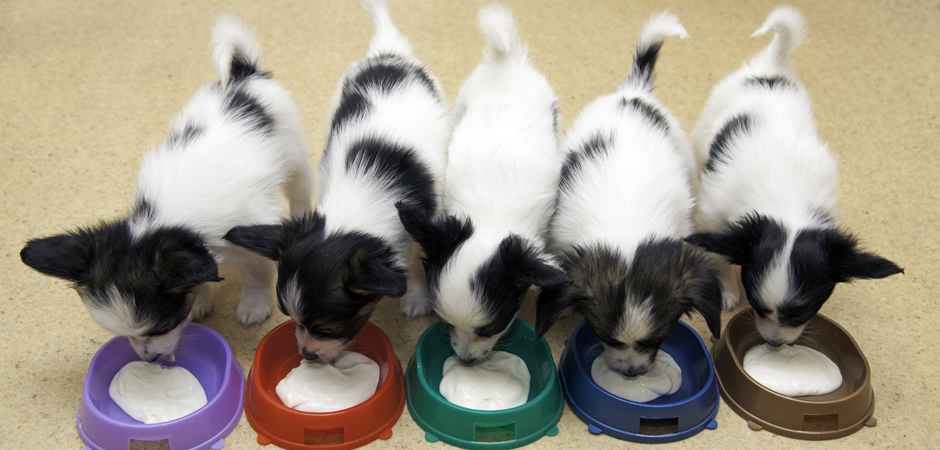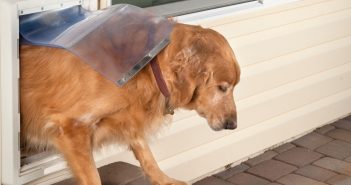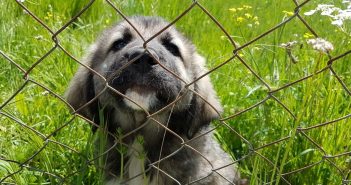 Starting dogs early on a raw dog food diet will allow them to gain the most benefit from this increasingly popular type of diet. If you can get them on this type of diet from puppy-hood, you will make sure they get all the nutrients they need in a form that their bodies are fully equipped to handle. That is why I strongly advocate weaning your puppies to a raw food diet as soon as it becomes possible.
Starting dogs early on a raw dog food diet will allow them to gain the most benefit from this increasingly popular type of diet. If you can get them on this type of diet from puppy-hood, you will make sure they get all the nutrients they need in a form that their bodies are fully equipped to handle. That is why I strongly advocate weaning your puppies to a raw food diet as soon as it becomes possible.
When you wean your puppies, you actually start off with milk meals to wean them from their mother. This means puppies as young as 2.5 weeks old can already be started on this type of diet. If you prefer to wait till your puppy is 3 to 5 weeks old, that’s fine too.
When preparing milk meals, you want to use raw or fresh milk. Goat’s milk is preferred because it’s easier for the puppies to digest it, but if that’s not available, other kinds of milk, like cow’s milk, are suitable as well.
Aside from goat’s milk, you would need to mix some other ingredients into your puppies milk meal to make sure that it gets all the nutrients essential for its growth.
Typical things to add include eggs (without the shell), unprocessed honey, flaxseed oil and yogurt. Some pet owners also add vitamin C and vitamin B supplements, just to make sure. Put all of these ingredients in a blender and mix them well before serving to your puppies.
When they’re just a few weeks old, you will need to feed your puppy on demand, which is usually 4 to 5 feedings in a day. Take your cue from how frequently they nurse from their mother.
When your puppies are around 6 weeks old, you can begin looking for indicators that they are ready for solid food. You may notice the mother regurgitating her food and feeding it to her puppies. You may also notice that your puppies now have teeth.
When you see these signs, you know you can start introducing some solid food into your puppies’ diet. An ideal first food would be a vegetable mush that has a 50% protein content.
Here are some key things to remember when starting your puppies on solids:
- Make sure to puree or mix the food together very well. This will make sure that your puppies get all of the nutrients that they need from the meals you serve them.
- When serving vegetables, avoid greens from the cabbage family as they can give your puppy gas or thyroid problems.
- Avoid serving grains at all times. Puppies cannot tolerate grains and you may end up giving them allergies.
- Serve one kind of vegetable or meat at a time for about a week, before moving on to another kind of meat or vegetable to help identify potential food allergies. Once you are certain that your puppies are not allergic to a selection of vegetables and meat that you have served them, then you can go ahead and mix those food together to serve to your puppies.
- You want to strive for balance and variety over a period of time. You can achieve this by alternating the meals that you serve your puppies.
- When starting your puppies on solids, make sure that you still continue to serve milk meals.
- Animal offal or organs are a good source of protein and other nutrients that your growing puppies need. But make sure that these do not make up more than 10% of your puppies’ meals.
Introducing the raw dog food diet to your puppies will require a lot of attention to detail and research, but it can also be very rewarding for you and the puppies.
One of the best resources for learning about RAW diets for dogs is the original book, written by Dr. Ian Billinghurst in the early 90’s, called Give Your Dog a Bone (GYAB).
The book is still available in its simple format and while the illustrations and language at times leave a bit to be desired, the basic principles of feeding dogs with readily obtainable human foods as opposed to processed pet foods still makes a lot of sense.
If you are new to the RAW diet and thinking of starting puppies, or adult dogs, on a more natural feeding routine, make sure you do your research and practice safe handling of raw meat to protect both the canines and humans living in your household. Dr. Ian Billinghurst is an Australian nutritionist, agricultural scientist, veterinary surgeon, author, nutritional consultant and producer of raw pet foods who has been in companion animal practice since 1976.




